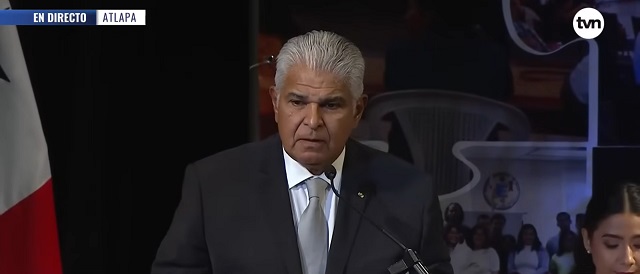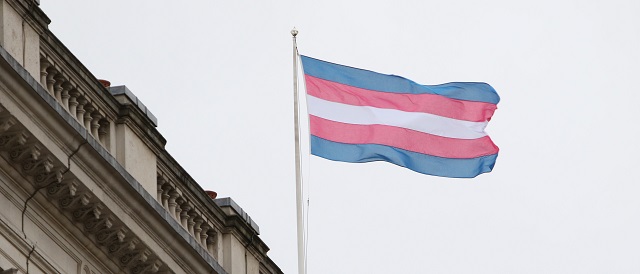Education
Elon Musk’s controversial Neuralink completes first-ever chip implantation in human brain

From LifeSiteNews
The billionaire mogul said the subject ‘is recovering well.’
Billionaire mogul Elon Musk’s controversial company Neuralink successfully implanted a computer chip into the brain of a human subject for the first time on Sunday. The technology and its potential impact on humanity has sparked serious ethical concerns.
Musk announced the news in a post on his social media platform X (formerly Twitter) on Monday.
“The first human received an implant from [Neuralink] yesterday and is recovering well,” he said.
The first human received an implant from @Neuralink yesterday and is recovering well.
Initial results show promising neuron spike detection.
— Elon Musk (@elonmusk) January 29, 2024
Musk said the company’s first product, named “Telepathy,” “[e]nables control of your phone or computer, and through them almost any device, just by thinking.”
“Initial users will be those who have lost the use of their limbs,” he said. “Imagine if Stephen Hawking could communicate faster than a speed typist or auctioneer. That is the goal.”
The news comes after the U.S. Food and Drug Administration (FDA) approved human trials for the novel technology under an “investigational device exemption” in May 2023. In September, the company announced it had “received approval from the reviewing independent institutional review board and our first hospital site to begin recruitment for our first-in-human clinical trial.”
Through the trials, researchers are attempting to determine whether Neuralink’s “BCI [brain computer interface]” functions to help “people with paralysis to control external devices with their thoughts.”
But restoring motor function to people with mobility impairments isn’t the only or even the primary goal of the brain chips, a reality Musk hinted at in his Monday social media posts.
The tech entrepreneur, who founded Neuralink in 2016, has been open about his belief in the technology’s potential to head off a dystopian, science fiction-esque outcome in which Artificial Intelligence (AI) becomes “much smarter than humans” and essentially takes over society.
In a speech at the California Academy of Sciences in San Francisco in 2019, Musk explicitly stated that the “point” of Neuralink is “to secure humanity’s future as a civilization relative to AI.”
“After solving a bunch of brain-related diseases, there is the mitigation of the existential threat of AI,” he said, arguing the technology will “be really important at civilization level scale.” According to Musk, only by “merging” with AI will humans develop the capacity to stay ahead of and protect themselves from it.
Musk has suggested that the chips will ultimately enable users to do things like “save and replay memories,” functioning as a “backup drive for your non-physical being, your digital soul.”
“The future is going to be weird,” he joked.
RELATED: World Economic Forum speaker touts technology that allows your boss to monitor your brain activity
Critics of the technology have raised strong and persistent concerns about the general loss of privacy and autonomy occasioned by the widespread use of the technology, as well as the potential for it to be weaponized against citizens by tyrannical governments.
Researchers assessing the impact of neurotechnology have identified “four new rights that may become of great relevance in the coming decades” amid the rise of implantable devices: “the right to cognitive liberty, the right to mental privacy, the right to mental integrity, and the right to psychological continuity.”
The technology presents serious philosophical and religious dilemmas as well.
Writing on the issue for The Catholic Stand in 2019, Ph.D. candidate and pro-life writer Christopher Reilly posed several major questions related to the technology’s impact on human beings, including: “Will use of the technology further erode respect for human dignity? … Will our spiritual identities become confused or damaged?” and “Does the technology enhance or detract from living in holiness?”
“The only thing obvious about all of this is that we need the guidance of the Church and tech-savvy theologians and philosophers,” Reilly wrote. “[A]nd we need that guidance very soon.”
Education
Schools shouldn’t sacrifice student performance to vague notions of ‘equity’

From the Fraser Institute
According to a new study published by the Fraser Institute, if Canada wants to remain competitive with emerging economies around the world, we must increase our math, science and reading scores—and not simply pursue high levels of “equity and inclusion” as the primary goal for our schools.
Indeed, highly equitable and inclusive schools—with declining PISA scores, as is currently the case in Canada—do a disservice to students and society at large.
Why? Because higher test scores translate into greater “knowledge capital”—that is, the full body of knowledge available to an economy—and boost economic growth (and, incidentally, the tax revenues that fund our schools).
Indeed, the goal should be equitable access to a quality education. And the most realistic and meaningful way to measure student progress is through PISA tests, which every three years assess the performance of 15-year-olds worldwide in core subjects of math, science and reading rather than the limited curriculum objectives used in provincial testing, which can only show progress or decline within individual school systems. In today’s world, where competition is truly global, we must know how our students and schools perform compared to their peers in other countries, especially the “Asian Tigers” of Hong Kong, Korea, Singapore and Tiawan whose rapidly growing economies have been driven by rising PISA scores.
Obviously, countries with higher test scores can teach other countries how to improve—although there are limits and some traps here. Attempting to cut and paste Singapore’s or Korea’s much more meritocratic systems of highly competitive student assessment and selection would be impractical and impolitic in Canada. Even so, policymakers should consider reinstating more meaningful meritocratic norms in Canadian schools to encourage and recognize academic achievement. Nothing succeeds like success, except recognized and rewarded success.
Closer to home, other provinces could benefit from considering why Quebec is such a stellar performer in math and why Alberta has the highest overall PISA test score average of all provinces.
But fair warning, recent attempts at school improvement in Canada show that top-down one-size-fits-all changes—including extending compulsory attendance, reducing average class size and tinkering with course content—have had little positive effect on student performance, although they may please teacher unions. If policymakers want to achieve more equitable success for more students, they should introduce more flexibility, school autonomy and choice into our top-heavy centrally regulated school systems. In this respect it may be no accident that the three highest performing, mid-spending provincial K-12 education systems (Alberta, Quebec and Ontario) offer relatively high levels of school choice, although of quite different kinds.
Equity and inclusion are noble goals, but they shouldn’t interfere with student progress. There’s too much at stake, for students and the country.
Author:
Red Deer
Expelled member of Red Deer Catholic School Board will have judicial reviews heard May 1-3

News release from The Democracy Fund
TDF and James Kitchen Defend School Board Trustee Monique LaGrange
Briefs were filed in Monique LaGrange’s case on the week of April 8, 2024.
RED DEER: The Democracy Fund (TDF) has partnered with lawyer James Kitchen to represent former school board trustee Monique LaGrange as she takes The Board of Trustees of Red Deer Catholic Separate School Division to court for kicking her off the Board because they took offence to one of Ms. LaGrange’s social media posts.
Mr. Kitchen filed two applications for judicial review in December 2023, challenging the Board’s decisions to penalize Mrs. LaGrange and disqualify her from sitting on the Board. Mr. Kitchen has now filed his briefs, which lay out in detail how the Board’s decisions are procedurally unfair and unreasonable and should be overturned by the Court of King’s Bench of Alberta.
The two judicial reviews will be heard virtually by a Red Deer judge over the course of a three-day hearing on May 1-3, 2024, starting at 2:00 PM on Wednesday, May 1. Members of the public are encouraged to attend by accessing this link.
In Alberta, judicial reviews are heard on the basis of a record of documents compiled and submitted to the Court by the decision-maker, which is supposed to include everything presented to the decision-maker at the time the decision was made. In this case, Mrs. LaGrange had submitted to the Board 33 pages of emails and letters from Albertans who supported her. At first, the Board failed to provide these supportive emails and letters to the Court, but that changed when Mr. Kitchen filed an application to compel the Board to do so. Redacted versions of these emails and letters, which are also quoted at length in the briefs, can be viewed here, starting at page 113 of 169.
Mrs. LaGrange was democratically elected to the Board in 2021. Despite this, the Board expelled her because she allegedly failed to comply with sanctions imposed on her by the Board in September 2023 for posting a meme to her Facebook account that some people found offensive. The impugned meme depicted two side-by-side photographs, one of children holding swastika flags and the other of children holding pride progress flags. The meme, which drew much support but also some disapprobation from the community, included a caption stating, “Brainwashing is brainwashing.”
The Board asked Mrs. LaGrange to apologize for the meme, which she declined to do because she believed she had done nothing wrong. In speaking to the Western Standard, Mrs. LaGrange stated, “I was elected to stand up and protect our children, and that is what I am doing.” Among other things, the Board, on September 26, 2023, ordered LaGrange to undergo sensitivity training at her own expense for allegedly breaching their code of conduct by posting the meme and to refrain from making public comments about sexual minorities in her official capacity as a Trustee.
The Board subsequently alleged Mrs. LaGrange had breached some of these sanctions and voted to disqualify Mrs. LaGrange as a trustee.
TDF and lawyer James Kitchen have chosen to defend Mrs. LaGrange to defend the free speech rights of all Canadians, especially in the context of statements made by democratically elected representatives.
To support Mrs. LaGrange, please consider making a tax-deductible donation on this page.
About The Democracy Fund:
Founded in 2021, The Democracy Fund (TDF) is a Canadian charity dedicated to constitutional rights, advancing education, and relieving poverty. TDF promotes constitutional rights through litigation and public education and supports access to justice initiatives for Canadians whose civil liberties have been infringed by government lockdowns and other public policy responses to the pandemic.
-

 conflict2 days ago
conflict2 days ago‘It Makes No Sense’: Experts Puzzled By Biden Admin’s Claim That Rafah Invasion Wouldn’t Help Israel Defeat Hamas
-

 City of Red Deer1 day ago
City of Red Deer1 day agoCity Council paving the way for more house suites, backyard suites, tiny homes, and duplexes
-

 Opinion1 day ago
Opinion1 day agoCanada’s fertility, marriage rates plummet to record lows: report
-

 Uncategorized16 hours ago
Uncategorized16 hours agoRCMP recruitment failure has Alberta advocacy group calling for Provincial Police Service
-

 COVID-192 days ago
COVID-192 days agoFormer COVID coordinator Deborah Birx now admits jabs could have injured ‘thousands’
-

 Bruce Dowbiggin2 days ago
Bruce Dowbiggin2 days agoWhy Do The Same Few Always Get The Best Sports Scoops?
-

 illegal immigration1 day ago
illegal immigration1 day agoPanama’s Incoming President Wants To Shut Down His Country’s Most Treacherous Route For Migrants — But Will It Work?
-

 Health18 hours ago
Health18 hours agoTHE WPATH TAPES: Behind-The-Scenes Recordings Reveal What Top Gender Doctors Really Think About Sex Change Procedures








